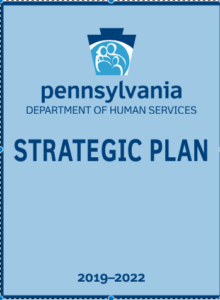PA Health Law Project Newsletter
The Pennsylvania Health Law Project has published its September 2020 newsletter Health Law News.
 Included in this month’s edition are articles about:
Included in this month’s edition are articles about:
- How Pennsylvania Medicaid beneficiaries who turn 21 during the COVID-19 emergency remain eligible for EPSDT services.
- Pennsylvania Health Law Project navigators who can help direct people to COVID-19 testing and treatment.
- A warning that without increased federal Medicaid matching money, states may seek to reduce Medicaid provider payments, increase beneficiary cost-sharing, or reduce services.
Read about these subjects and more in the Pennsylvania Health Law Project’s September 2020 newsletter.
 PACE Prescription Drug Program
PACE Prescription Drug Program  PA General Assembly Update
PA General Assembly Update Infection Control
Infection Control While DHS’s area of endeavor is broad and goes beyond health care, Medicaid is an important aspect of its work and that importance is reflected in the plan, which includes descriptions of DHS’s ambitions in the following areas:
While DHS’s area of endeavor is broad and goes beyond health care, Medicaid is an important aspect of its work and that importance is reflected in the plan, which includes descriptions of DHS’s ambitions in the following areas: The Department of Human Services bulletin outlines the purpose of the new PDL, provides background information, and describes how the PDL was developed and will work. In addition, it lists the past Medical Assistance Bulletins rendered obsolete by the new bulletin and describes the prior authorization procedures that will be employed when the new program takes effect on January 1, 2020.
The Department of Human Services bulletin outlines the purpose of the new PDL, provides background information, and describes how the PDL was developed and will work. In addition, it lists the past Medical Assistance Bulletins rendered obsolete by the new bulletin and describes the prior authorization procedures that will be employed when the new program takes effect on January 1, 2020. The proposal will be considered by the Senate Health and Human Services Committee.
The proposal will be considered by the Senate Health and Human Services Committee.